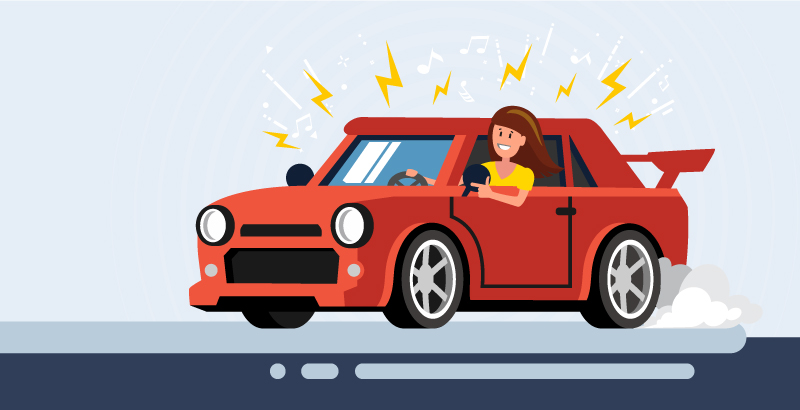

**Playing Loud Music in Your Vehicle Could Result in Arrest: Grasping the Risks and Regulations**
Cruising with music blaring from your car speakers can be a thrilling experience, yet it is crucial to recognize that playing loud music in your vehicle might bring about legal ramifications, including arrest. Numerous jurisdictions have enforced laws and regulations concerning noise pollution, particularly regarding loud music emanating from cars. Here’s what you ought to know about the possible legal consequences and the rationale behind these regulations.
**Noise Pollution and Public Disturbance**
Noise pollution remains a serious issue in numerous urban and suburban locales. Excessive noise can disturb the tranquility, interrupt daily routines, and even affect health by exacerbating stress and causing hearing impairment. Loud music from cars typically contributes to noise pollution, leading many communities to create ordinances that restrict the volume of music played in vehicles.
**Legal Framework and Enforcement**
The specific laws pertaining to loud music in cars differ by region, but they generally align with wider noise control ordinances. Typically, these laws establish decibel limits or delineate certain distances at which music should remain inaudible. For instance, in some areas, music that can be heard from a distance of 25 feet or more from the vehicle may be forbidden. Breaching these ordinances can lead to fines, and in certain situations, repeated violations may result in arrest.
Law enforcement officials are generally tasked with upholding these noise ordinances. They might utilize decibel meters to assess sound levels or depend on their judgment to ascertain whether the music is excessively loud. Should an officer conclude that the music constitutes a public disturbance, they might issue a citation or, in more serious cases, initiate an arrest.
**Potential Consequences of Breaching Noise Ordinances**
The repercussions of playing loud music in your vehicle can vary from monetary penalties to more serious legal outcomes. First-time offenders might receive a warning or a fine, whereas repeat offenders could incur stiffer fines, community service, or even jail time. In certain regions, authorities may impound vehicles or seize sound equipment if the infraction is considered particularly severe.
**Impact on Driving Safety**
In addition to legal concerns, playing loud music in your car can also create safety hazards. Elevated volume levels may hinder a driver’s ability to hear crucial sounds, such as emergency vehicle sirens, honking horns, or other auditory signals essential for safe driving. This can raise the chances of accidents and jeopardize the safety of both the driver and other road users.
**Considerations and Best Practices**
To mitigate potential legal issues and enhance safety, take the following best practices into account:
1. **Know Your Local Laws**: Get acquainted with the noise ordinances in your vicinity or any area you intend to visit. Understanding the precise regulations can help you avoid unintentional violations.
2. **Regulate Your Volume**: Keep your music at an acceptable volume, particularly in residential zones or during late hours. If you can hear your music distinctly outside the vehicle, it might be too loud.
3. **Use Headphones Sensibly**: If you enjoy listening to music at louder levels, think about using headphones. However, exercise caution as this can also restrict your ability to perceive external sounds while driving.
4. **Be Mindful of Others**: Keep in mind that not everybody shares your musical tastes or preferences for high volume. Being considerate of others can aid in preserving community harmony and averting complaints.
In summary, while relishing music in your car is a widespread and often delightful activity, it’s vital to be aware of the volume to steer clear of legal troubles and ensure safety. By complying with local noise ordinances and considering the effect of loud music on both yourself and your community, you can enjoy your music without the threat of arrest.






